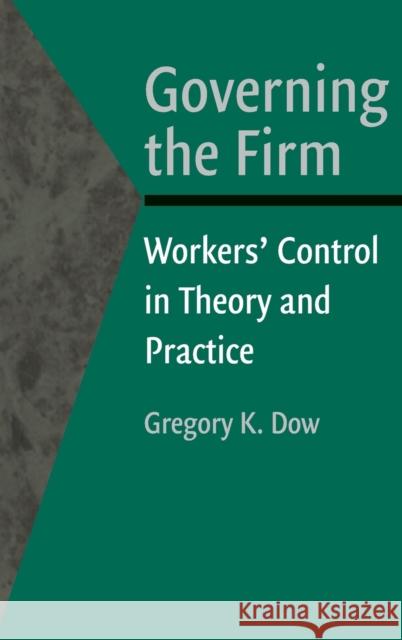Governing the Firm: Workers' Control in Theory and Practice » książka
Governing the Firm: Workers' Control in Theory and Practice
ISBN-13: 9780521818537 / Angielski / Twarda / 2003 / 342 str.
Governing the Firm: Workers' Control in Theory and Practice
ISBN-13: 9780521818537 / Angielski / Twarda / 2003 / 342 str.
(netto: 425,81 VAT: 5%)
Najniższa cena z 30 dni: 357,65
ok. 16-18 dni roboczych.
Darmowa dostawa!
Most large firms are controlled by shareholders, who choose the board of directors and can replace the firms management. In rare instances, however, control over the firm rests with the workforce. Many explanations for the rarity of workers' control have been offered, but there have been few attempts to assess these hypotheses in a systematic way. This book draws upon economic theory, statistical evidence, and case studies to frame an explanation. The fundamental idea is that labor is inalienable, while capital can be freely transferred from one person to another. This implies that worker controlled firms typically face financing problems, encounter collective choice dilemmas, and have difficulty creating markets for control positions within the firm. Together these factors can account for much of what is known about the incidence, behavior, and design of worker- controlled firms. A policy proposal to encourage employee buyouts is developed in the concluding chapter. Gregory L. Dow is Professor and Chair of the Department of Economics at Simon Fraser University, British Columbia, Canada. He previously taught at the University of Alberta and Yale University, and has served as a visiting professor at the University of New South Wales, the Erasmus Institute for Philosophy and Economics, and the Swedish Collegium for Advanced Studies in the Social Sciences. Professor Dow is Associate Editor on the Journal of Economic Behavior and Organization and has published numerous articles on labor-managed firms and other topics in economic theory in leading journals such as the American Economic Review and the Journal of Political Economy.











